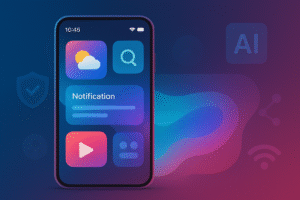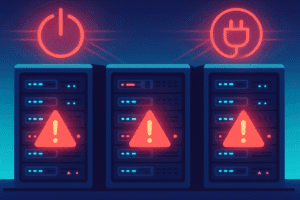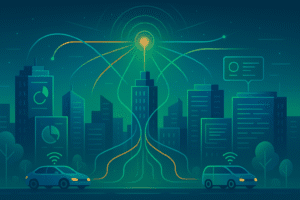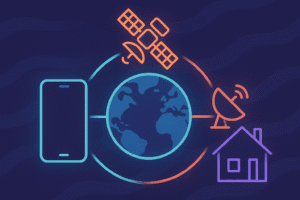What Is a VPN and Do You Really Need One?
In an age where nearly everything we do is tracked, online privacy is no longer a luxury—it’s a necessity. One of the most talked-about tools for protecting that privacy is the VPN, or Virtual Private Network. But what exactly is a VPN, and should you be using one?
What Is a VPN?
A VPN (Virtual Private Network) is a service that encrypts your internet connection and reroutes it through a secure server. When you connect to a VPN, your IP address is hidden, and your data is encrypted, making it much harder for third parties—like hackers, ISPs, or even governments—to track your online activities.
Whether you’re browsing at home, on public Wi-Fi, or even traveling, a VPN helps protect your digital footprint from being monitored or exploited.
How Does it Work?
Here’s a simplified breakdown:
- You connect to the internet through your VPN provider.
- The VPN encrypts your data before it leaves your device.
- It then routes your encrypted traffic through one of its servers in another location.
- Websites and apps now see the VPN server’s IP address—not yours.
This setup not only boosts security but also allows you to mask your location and access geo-restricted content (like streaming libraries from other countries).
The Real Benefits of Using a VPN
1. Enhanced Security on Public Networks
Public Wi-Fi in cafés, airports, or hotels is a hacker’s paradise. A VPN encrypts your connection, making it almost impossible for others to intercept your data.
2. Online Anonymity
Your IP address reveals a lot about you—your location, your ISP, and more. With a VPN, you’re far less traceable, providing a layer of anonymity many users value.
3. Bypass Geo-Restrictions
Ever tried to watch a show only available in another country? VPNs let you appear as if you’re browsing from somewhere else, opening up content libraries worldwide.
4. Avoid Price Discrimination
Some websites change prices based on your location. With a VPN, you can shop smarter by checking prices from different virtual locations.
According to NordVPN, millions use VPNs not just for security but also to avoid censorship, access better content, and secure remote work.
Do You Really Need One?
It depends on your priorities. If you value your privacy, regularly use public networks, or want access to global content, a VPN is more than just a techy buzzword—it’s an essential tool.
But if you only browse social media and check email from home, the urgency might feel lower. That said, the risks of staying exposed are only increasing, and more devices and apps are collecting more data than ever before.
So the better question might be: Can you afford not to have a VPN?
Choosing the Right VPN Provider
There are hundreds of VPNs out there, but not all are created equal. When choosing a VPN, look for:
- No-logs policy (they don’t store your data)
- Strong encryption protocols
- Fast speeds
- A large number of global servers
- Positive reviews and transparent policies
Reputable providers like ExpressVPN, Surfshark, and ProtonVPN are popular for a reason.
Be cautious of completely free VPNs—they often come with limitations or monetize your data in ways that compromise your privacy.
Is a VPN Worth Paying For?
Yes—if you care about digital security, online freedom, and protecting your personal information. The internet is not as private as it once was, and a VPN is one of the simplest ways to take back control.
It won’t make you invincible, but it’s a powerful layer in your cybersecurity stack.
Related Content
- Free Tools to Clean and Speed Up Your Slow Computer
- How to Set Up a Secure Wi-Fi Network at Home
- Best Parental Control Apps to Keep Your Kids Safe Online
Share this post:














Post Comment